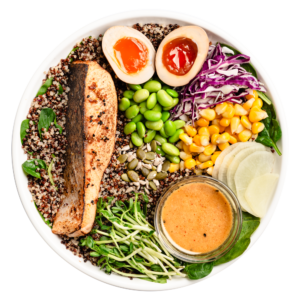In recent years, fermented foods have gone from being traditional staples in various cultures to trending superfoods lining grocery store shelves. Centuries of health wisdom support this rise in popularity—and modern science is now catching up. From supporting gut health to enhancing nutrient absorption, fermented foods offer a natural way to boost your well-being.
In this article, we’ll explore the benefits of fermented foods, the wide variety available globally, and most importantly, subtle ways to include them in your meals—whether you’re dining out, meal prepping at home, or building a personalized salad at places like SaladStop!, which also offers a range of house-made fermented options like kimchi and pickles.
What Are Fermented Foods?
Fermentation is a natural process in which microorganisms such as bacteria, yeast, and molds break down carbohydrates—like sugars and starches—into simpler compounds. This not only helps preserve food but also enhances its flavor, texture, and nutritional value.
Some of the most common fermentation processes include lactic acid fermentation (used in yogurt, kimchi, and sauerkraut), acetic acid fermentation (used in vinegar and kombucha), and alcoholic fermentation (used in beer and wine). As a result, you get a tangy, flavorful product rich in beneficial compounds.
Health Benefits of Fermented Foods
1. Gut Health Support
Fermented foods are rich in probiotics—live bacteria that benefit the digestive system. In particular, these good bacteria help balance the gut microbiome, a community of microorganisms essential for digestion, nutrient absorption, immune response, and even mental health.
2. Improved Nutrient Absorption
Fermentation can increase the bioavailability of vitamins and minerals. For example, fermented vegetables may offer more easily absorbable iron, calcium, and B vitamins compared to their raw counterparts.
3. Immune System Boost
A balanced gut microbiome contributes to a strong immune system. By regularly consuming fermented foods, you may reduce inflammation and increase your body’s resilience to illness.
4. Natural Preservation
The acids and antimicrobial compounds produced during fermentation naturally preserve the foods, making them a safer and more sustainable choice—free from artificial preservatives.
5. Enhanced Flavor and Satiety
The bold, umami-rich flavor of fermented foods can elevate any meal while also promoting satiety, helping with portion control and mindful eating.
Popular Types of Fermented Foods Around the World
1. Kimchi (Korea)
Koreans prepare kimchi, a staple in their cuisine, by fermenting vegetables—usually napa cabbage and radish—and seasoning them with chili flakes, garlic, ginger, and fish sauce. It’s tangy, spicy, and full of probiotics.
2. Sauerkraut (Germany)
This finely shredded cabbage fermented in its own juices is rich in fiber and vitamins C and K. It’s a versatile topping for sandwiches and grain bowls.
3. Yogurt and Kefir (Global)
These cultured dairy products are fermented with specific strains of bacteria and are great sources of calcium, protein, and probiotics. Kefir contains a broader range of beneficial microbes.
4. Pickles (Various)
Fermented cucumbers—often simply called pickles—are crisp, tangy, and make a perfect gut-friendly snack. Traditional pickling uses brine and natural fermentation rather than vinegar.
5. Miso (Japan)
Made from fermented soybeans, miso is a paste used in soups, dressings, and marinades. It’s rich in umami flavor and contains beneficial enzymes and probiotics.
6. Tempeh (Indonesia)
This protein-rich product made from fermented soybeans has a firm texture and nutty flavor, making it a popular meat substitute in plant-based diets.
7. Kombucha (China)
A fizzy fermented tea, kombucha is brewed using a symbiotic culture of bacteria and yeast (SCOBY). It’s slightly sweet, slightly acidic, and rich in probiotics and antioxidants.
Adding Fermented Foods to Your Diet
Incorporating fermented foods into your daily meals doesn’t have to be complicated. You can start small by adding a spoonful of kimchi to your rice bowl, a side of sauerkraut to your sandwich, or a few pickled vegetables to your salad.
At SaladStop!, customizing your own bowl or wrap means you can easily add probiotic-rich foods to your lunch. Options like house-made kimchi, brined pickles and miso-based dressings offer subtle but effective ways to enjoy the benefits of fermentation without changing your usual order. These not only add complexity to flavor but also enhance your gut health with every bite.
You can even plan ahead and preorder your next gut-friendly meal here to save time and stay on track with your nutrition goals.
Fermented foods are more than just a trend—they’re time-tested, nutrient-dense additions to a healthy diet. With benefits ranging from improved digestion to enhanced immunity, there’s every reason to give them a place on your plate.
As awareness grows, so do the options for integrating these powerful foods into everyday meals. Whether you’re preparing them at home, exploring global cuisines, or customizing your lunch at SaladStop!, fermented foods offer a simple and delicious way to nourish your body from the inside out.




